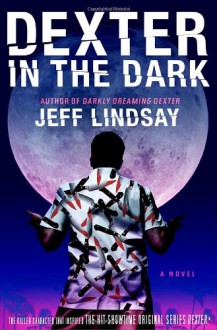
I'm pretty sure I remember how this ends. Book LaGuerta is ambitious but not quite suspicious enough or smart enough, and
she just made her last bad decision.

I'm pretty sure I remember how this ends. Book LaGuerta is ambitious but not quite suspicious enough or smart enough, and
she just made her last bad decision.

I don't think I really understood how horrible of a person and cop Harry was when I first listened to this. Dexter always presents him as a great guy, a cop who took a boy who turned out to be a monster into his home and helped make him less dangerous to the general populous by teaching him to control his urges and direct them solely at other monsters. Except Harry could have chosen to put Dexter in therapy and didn't. He just declared him unsalvageable, because of course cops know these things best.

The last time I listened to this was maybe 15 years ago. Since then I've read a few more books in the series and watched a couple seasons of the TV series. Let's see how this relisten goes. I don't remember a lot of the details, just that this was the only book in the series that the TV show followed even vaguely faithfully.

I recall not really liking the supernatural aspect of this one. It was such a turn out of left field


Obviously, Agatha Christie is still the reigning queen of misdirection in a mystery, but for this task I'm going to go with Colin Dexter's Inspector Morse series, which I am bit by bit revisiting at the moment, courtesy of the splendid audio versions narrated by Samuel West. The solutions of Dexter's books frequently depend on anagrams, crossword-style clues and similar instances of lateral and "six degrees of separation" thinking (the protagonist isn't named Morse for nothing), all which he tends to employ to great effect -- not least since before you've cottoned on to the particular sleight of hand he is using at any given time, the plot still seems to make sense to you and you might well think you're on to quite a different solution. The Wench is Dead has always been one of my favorite books by Dexter, not least because it also contains a bit of historical fiction writing (of sorts) and a story within a story -- in essence, it's Dexter's bow to Josephine Tey's The Daughter of Time and The Franchise Affair.